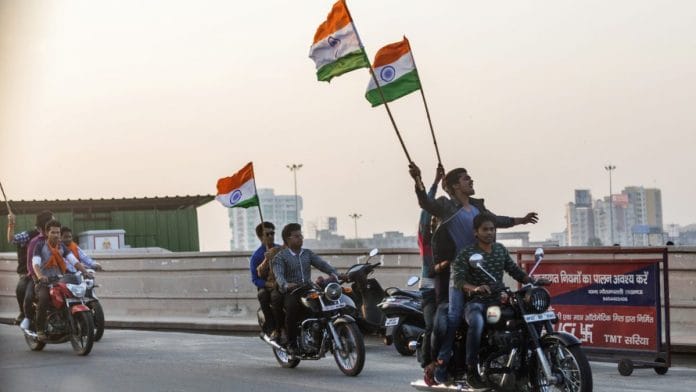
Thank you dear subscribers, we are overwhelmed with your response.
Your Turn is a unique section from ThePrint featuring points of view from its subscribers. If you are a subscriber, have a point of view, please send it to us. If not, do subscribe here: https://theprint.in/
On 15th August 1947, India became a sovereign country free from British colonial rule. In the infancy period of our country, we set up many systems for governance and public service. From these systems, Constitution, and political atmosphere, an Idea of India was born. I look at the idea of India in two prisms. First, how our democratically elected governments and more expansive political establishments are working for me. Second, how well informed I and we as a wider public are about all the sides of any issue. So here, the role of media – print, electronic and digital – comes into the picture.
From the first prism, I try to judge how India is working as a governing unit. Any democracy should aspire towards the betterment of its people. Our Constitution offers a pathway to it and provides separation of powers for all three branches, i.e., legislative, judiciary, and executive.
The Constitution should be a living, breathing document and not an archaic utopian idea that does not hold to the changing realities. Judging on this idea, I will rate our Constitution as B+. It has served our nation exceptionally well in framing fundamental rights of citizens and directive principles for the state policy and reasonably provided a framework for three independent branches, i.e., judiciary, legislative, and executive.
But it has proven to be a mess in central, state, and concurrent lists where the respective governments have a right to make laws. With clashing political mandates and ambition, there is increasing friction between central governments and state governments in making laws and many legal challenges pending in Supreme Court. This all delays and limits the executive’s decision-making and gives political parties a great place to do political posturing. In my opinion, this is proving to be a significant detriment to the legislative process. So, what I see in my idea of India is less friction between state versus central government and time-bound judgments from the judiciary at least in the case of deciding validity of the newly made laws. As far as the current state of Parliament and various state legislative bodies is concerned, we need a complete overhaul of parliamentary rules to avoid the sessions washed away in the ruckus. Also, I would like to bring the shadow cabinet idea from the British system here in India, which will incentivise the opposition to look at the legislations deeply and offer alternatives in a televised platform.
The second angle to this political environment is elections. Today’s discourse somewhat dilutes the importance of elections and should constantly reaffirm that elections have consequences. Today, especially in the opposition, I feel distaste towards the polls, and they feel elections are somewhat inferior. The ideological battle is the supreme battle that we should engage in. Narendra Modi and his idea are precisely the opposite. He has somehow managed to weave the ideology and winning elections. I think all political parties should understand this and work on their message with a balance of critique of ruling dispensation with a good messenger and robust alternative solutions to the problems faced by the people.
In my idea of India, I would like to see the voters become more transactional. The delivery from the governments should be the most important metric on which they would judge and cast their vote, and the voters should be able to distinguish between culture wars and honest tangible discourse. Today, in this hyper-polarized world and constant social media noise with millions of non-credentialed political pundits, the right, accurate, and proper information becomes valuable. And here, the role of media becomes crucial. Today the value of credentials has been diminished, and unfortunately, in the race of getting more TRP, these news shows have become reality entertainment. We need these shows to show the discourse correctly to people and hopefully inform them. These shows need to find their clarity and identity and then take us on their journey. In my Idea of India, I would like to see the media find their voice and strive for an informed debate rather than political tu tu main main. Because informed Public would uphold the democratic values and echo of intolerance would not ring in our society’s discourse.
Finally, I would say the idea of India is not set in stone and would be subjective, but we must try to uphold some standard value system, keep our politics local and straightforward, don’t push our opinions onto others but have an informed debate. If we could be able to achieve this, this independent India will have a very bright future.
Also read: Lakshmibai drank, was promiscuous, British historians wrote. Then Savarkar changed it all
These pieces are being published as they have been received – they have not been edited/fact-checked by ThePrint.


COMMENTS